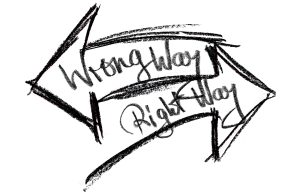
Imagine a world where machines make decisions that impact our lives every day – decisions about who gets a loan, who gets hired, or even how justice is served. Now pause for a second! This isn’t the plot of a science fiction movie; it’s our reality, and it’s evolving faster than we ever imagined. As AI becomes an integral part of our lives, the real question we must ask ourselves is not just what AI can do, but what it should do.
With the rapid integration of AI across industries, ethical considerations have never been more crucial. A 2024 report revealed that over 80% of companies surveyed have plans or have already moved towards AI, however greater emphasis has not been placed on ethical guidelines for AI use.
The Invisible Hand Behind AI
One of the most pressing concerns is bias in AI algorithms. These algorithms, often considered impartial, can actually perpetuate and even amplify existing biases if not carefully monitored. For example, consider a hiring algorithm that favours candidates based on historical data. If that data reflects past biases, the AI could continue to sideline qualified candidates who don’t fit the traditional mould, further entrenching inequality.
AI, like a mirror, reflects the data it’s trained on, and if that mirror is cracked, the reflection is distorted. It’s like giving a key to the future to a machine that sees the world through a narrow lens – potentially locking out those who don’t conform to its skewed perspective.
The Fine Line Between Innovation and Intrusion
Another critical issue is data privacy. With AI’s growing appetite for data, the line between innovation and intrusion becomes increasingly blurred. Imagine a scenario where your personal data is fed into an AI system to predict your behaviour. It might seem harmless at first – perhaps it’s just suggesting what movie to watch next – but what happens when it starts predicting your job performance, your health risks, or your creditworthiness?
In 2023, a major scandal erupted when it was discovered that a popular social media platform’s AI had been using users’ private messages to refine targeted ads. The backlash was swift and severe, but it highlighted a broader issue: how much of our privacy are we willing to sacrifice for convenience?
It’s like inviting a stranger into your home who gradually starts learning your habits and routines, until one day, you realise they know you better than you know yourself. The convenience comes at the cost of your personal space, and in the digital world, that space is your data.
AI Etiquette: The Role of the User
But it’s not just companies that need to tread carefully; individuals also have a responsibility in how they interact with AI. There’s a growing trend of using AI to generate content that pushes the boundaries of what’s considered acceptable – sometimes crossing the line from humour into offensiveness.
Consider the recent case where an AI-generated meme went viral for all the wrong reasons. What was intended as a joke quickly spiraled into controversy, as the AI’s lack of contextual understanding turned a harmless quip into something deeply offensive.
It’s like handing a megaphone to someone who doesn’t understand the power of their words. AI amplifies our voices, but without a sense of empathy or cultural awareness, it can just as easily amplify our mistakes.
If individuals don’t take the initiative to use AI responsibly, there’s a real risk that governments will step in with heavy-handed regulations. And while regulation is necessary, it often lags behind innovation, potentially stifling the very creativity that AI enables.
Time to Think
As we stand on the brink of an AI-driven future, we must ask ourselves: How are we ensuring that this powerful technology is used ethically and responsibly? How is your organisation addressing AI ethics, and more importantly, how are you, as an individual, playing your part?
The moral maze of AI is complex, but it’s one we must navigate together. Let’s not wait for the consequences to unfold, let’s shape the future now. Share your thoughts, insights, and experiences in the comments below. Let’s start a conversation that could very well define the ethics of tomorrow.
